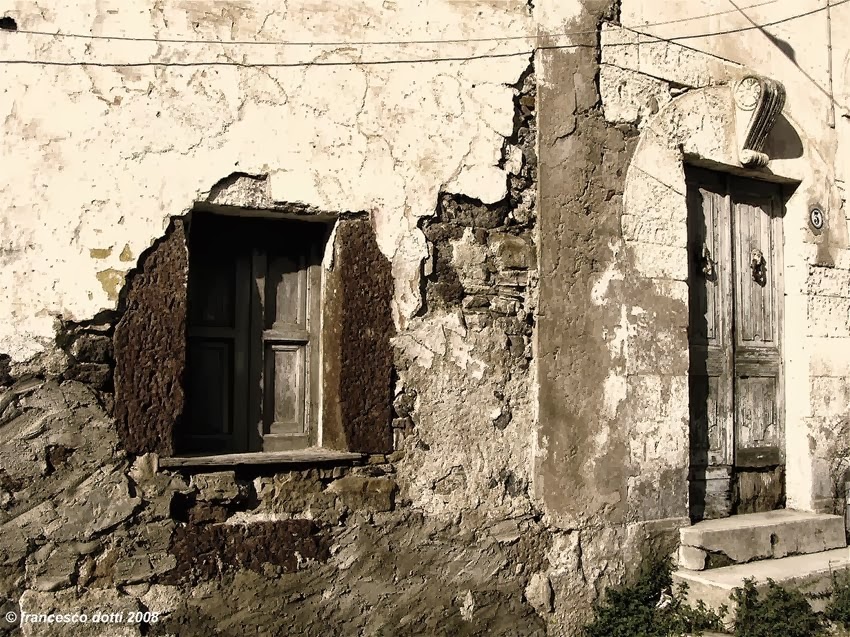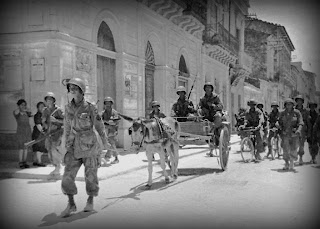Given Away, A Sicilian Upbringing

Discussion Guide:
Created by Marianna Randazzo
The following questions and insights into the time period of the first half of the 20th century are offered as a springboard for discussion.
• Why were children given away to relatives or other adults during the 20th Century? This was not an unusual practice especially in European countries as well as in the US. Have you heard of or experienced any such instances?
• Italian Superstitions. While not Italian in origin, many Italians believe in il malocchio . Part superstition, part tradition, it is the belief in the evil eye, placed on someone when someone else is jealous or envious of the other's good luck. The malocchio then manifests itself in some sort of misfortune onto the cursed person, usually some physical ailment.
It can also be done involuntarily, like when you see a beautiful baby and you compliment the parent. That could be construed as envy and the parent must then say something like "God bless her" right after it to ward off a possible malocchio, many believing that even though the compliment may have sounded sincere, its real motive was envy. The person who gives the evil eye is not necessarily evil, but does indeed harbour jealousy.
• Child Brides. In Sicily as well as in other parts of the world, cultural and economic pressures had lead parents to marry off their young daughters. The girls were often treated as commodities, promised to be brides to husbands they hadn’t chosen and at times not even being old enough to bear children. Traditions that were centuries old determined the fate of thousands of girls. In addition to the bride, the girl’s family was expected to provide a dowry, a sort of payment to her future in-laws. In Sicily a dowry may have consisted of anything from fine jewels and linens to three pigs and a goat.
How have societal norms changed over the years when it comes to weddings, matchmaking and dowries?
• Families are much more than groups of individuals. They have their own goals and aspirations. They also are places where every child and adult should feel that he or she is special and be encouraged to pursue his or her own dreams; a place where everyone's individuality is permitted to flourish.
o What effect do the family dynamics of Vittoria’s family play in shaping her self-concept and how did it influence the way she formed relationships later on in life?
o Discuss Zia Nancy’s role in the extended family.
o Do similar roles still exist in modern society?
• What is your impression of Sarina? Was she wrong to send her child off with her aunt or does this seems like a perfectly normal under the circumstances?
• What impression have you formed of Gianni? Does the fact that he served in the war and came home to find his parents wiped out from the Spanish flu alter your opinion of him? Can perpetrators of chaos be victims themselves?
• Discuss Tina’s sister, Lena’s response to the circumstances (Tina being taken away by her aunt), and her parent’s reaction to the situation.
• Benito Mussolini was the Italian Fascist Prime Minister from 1922 to 1943. He utilized political intelligence, propaganda, and charismatic acting and perpetuated himself as Il Duce (The leader) and Italy as a Fascist State. How did Sarina’s opinion of Mussolini differ from what most Italians at the time felt about him? How did it differ from her husband’s opinion?
• Southern Italy was an impoverished region possessing a highly stratified, virtually feudal society. The bulk of the population consisted of petty landowners or sharecroppers and farm laborers all of whom eked out meager existences.
The dominating fact of their existence was continuous, inadequately rewarded labor. Education beyond the third grade was out of the question.... At eight or nine years of age, if not sooner, the peasant child was old enough to work for the greater good of the family. Discuss what occupations were prevalent in Sicilian families and what roles Tina’s family played in society. Discuss the roles of Italians as they immigrated to other parts of the world.
• Health and Sickness: How did people treat illness in the early 20th century? The answer depended a great deal on how much money you had, where you lived, and how much medical information you could find out. For most people, it was very difficult to afford medicines or to call a doctor. For many families, even the slightest illnesses could be fatal or certainly life-changing. Old family medicine recipes would be the first choice for most families. In Given Away home remedies were utilized, midwives and doctors were called and ultimately, hospitalization was used as a last resort. Discuss some of the situations and practices Tina and her family had to encounter.
• Does science have all the answers? Even today there are scientifically inexplicable phenomenons. Such was the case of Signora Manzoni who used Holy Water, her crucifix and her Rosary Beads to fight the evil spirit that plagued her. Discuss phenomenon that you have read or heard about or experienced yourself.
• Given Away, A Sicilian Upbringing deals with many themes: violence, family, the quest for meaning and connection, faith, and the power of chaos to change our lives. These themes are stitched together by two opposing emotional states—despair and hope. How are these two oppositional states intertwined in the story? How are they demonstrated in the story? Use any of the character's lives as an example.
• Do you believe that out of chaos—tragedy—comes understanding and hope? Is this always the case? Discuss the main characters. What were your impressions of Tina, Vittoria and Sarina and Nancy? Did your impressions of these characters change over the course of the novel? If so, why?
• How do Tina and her mother’s relationship evolve from the beginning of the story to its conclusion? Why did Tina continue to cherish her mother? Would Tina have been justified in detaching herself from her family? If they had separated, what might have happened to them? Do you think Tina could have found happiness in America without the events she experienced? Do you think she could have learned to survive without believing in her parents, her aunt, and other family members despite their flaws?
• Did reading the novel take you to unexpected places or raise unfamiliar feelings? Explain.
Author’s note: Given Away, A Sicilian Upbringing was inspired by true events. The real Tina is still living in Florida. In 2013 she turned 82, Lena is now 83.
At a recent book presentation she told her audience, “I came to this country with twenty-five cents in my pocket. I now live in a beautiful home in Florida with my children and grandchildren. In my lovely home are five bathrooms!”
Those who have read the book understand the significance of her last statement. She also added, “I will be forever grateful to my Zia Nancy who did find it in her heart to bring me to this wonderful country.
What is your impression of Tina now?
If you wish to write to Tina, please send your letters to mrandazzo3@gmail.com . All letters will be forwarded to her. She will be ecstatic to know that her story has touched so many lives.
Thank you for reading my story. Please feel free to contact me with any further questions or comments.
Warmest Regards,
Marianna Randazzo


No comments:
Post a Comment
Please leave a comment or perhaps a question for Eleanor Roosevelt and she will be happy to answer it for you.